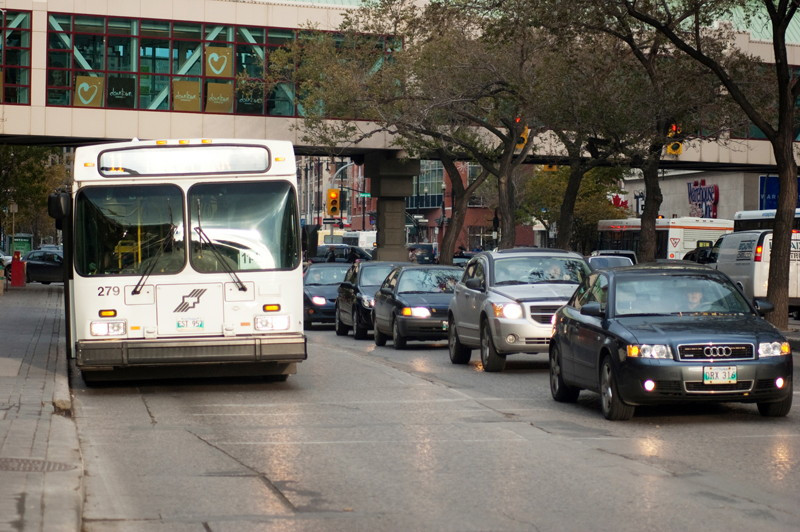Increase vehicle ownership to improve employment, report says
Critics question whether strategy is realistic
A recent report suggests vehicle ownership may be one way to help social assistance recipients find and keep jobs.
The report, released by the Frontier Centre for Public Policy, cites positive results from U.S. non-profit vehicle assistance programs that match welfare recipients with inexpensive cars. Some states have dropped “vehicle asset tests” that sometimes force people to sell their cars in order to qualify for social assistance.
In Manitoba, social assistance applicants are allowed to own one vehicle without a reduction in assistance. However, after $285 for shelter and $195 for basic needs are accounted for, very little remains from the monthly social assistance allotment to cover transportation costs.
“Our current transportation system may not be meeting the needs of all users, particularly in remote or northern regions where there is no public transit,” said Paula Keirstead, chair of the poverty advisory committee for the Social Planning Council of Winnipeg and a co-ordinator at Community Financial Counseling Services.
There are some concerns, however, with the suggested model.
“Promoting car ownership is inconsistent with our society’s environmental goals,” said Shauna MacKinnon, Manitoba director of the Canadian Centre for Policy Alternatives.
There is also little mention of ongoing vehicle maintenance costs.
“[Vehicle ownership] can be an added stress if you’re on limited income,” said former social assistance recipient Michael Zacharias.
MacKinnon agreed, adding that it can be difficult to afford vehicle upkeep on minimum wage, even if car ownership increases access to jobs.
The U.S. vehicle access models examined in the report are a mix of non-profit and government-funded initiatives.
“This charity model implies that only the deserving poor get assistance,” said Kierstead.
MacKinnon questions the effectiveness of a private approach to an issue that has broader public implications.
“Why should our tax dollars go towards supporting a charity that focuses on individual solutions?” she said. “Our tax dollars would be better spent on items that assist everyone.”
Zacharis, meanwhile, thinks people are missing the big picture in this case.
“The basic needs of housing and food security have to be met,” he said.
Comprehensive supports and a transition component should be built in to allow recipients to focus on their future “instead of worrying day to day about survival,” Keirstead noted.
“There needs to be a bridging mechanism that focuses on improving transit and allowing people to transition into employment,” she said.
Published in Volume 64, Number 9 of The Uniter (October 29, 2009)







